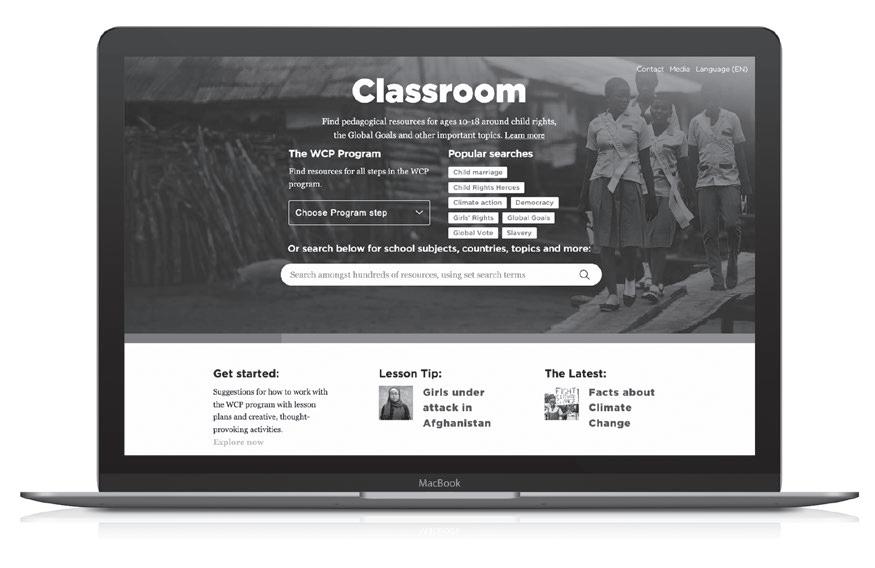
1 minute read
CHANGEMAKER MISSION Set up a Child Rights Club
Let’s meet!
• Share experiences
Let everyone share whatʼs happened since the last meeting. This can be how club members have promoted children’s rights in school or at home. Or if any problem has turned up that you need to address.
• Activity time
Pick one or two activities that members have agreed on and get to work!
• Talk about new ideas
Let everybody suggest ideas for future events and activities.
Children can run Child Rights Clubs at your school or where they live. Teachers can support their students but should never decide what they do. That is up to the children!
In a Child Rights Club or other group, children can come together to discuss their rights, support each other and share experiences. They can learn and teach, and support friends and families where they live. Club members can act for change in their villages or towns; inform other children about their rights; support those who have had their rights violated; organize changemaker activities such as rallies; and encourage adults to listen to children’s ideas and problems.
What to do?
At club meetings, everybody should have a say in what they should do. Then, they can take a vote on what to do first. Activities can include:
• Bringing The Globe home to share stories with family, friends and neighbours.
• Organizing meetings and rallies.
• Putting on plays and writing stories.
• Holding competitions and debates.
• Informing local leaders and authority figures about children’s rights and equal rights for girls.

Who does what?
Tasks can be divided amongst the club members. They can pick different areas of responsibility or take turns doing different things. Someone can take notes at the meetings to keep track of what the club agrees on. Some may want to volunteer to watch for warning signals from children and reach out to children and families that need support.
Remember!
No one should be pressured to share their experiences! If a child is in great distress or danger, seek help from a responsible adult you trust and/or a WCP Focal Point. If members cannot get adult support, they can “blow the whistle”. Find out how on p. 30.
Pierre, 14, runs a Child Rights Club with his friends. “Children can come and talk to us about their experiences of rights violations. Then we take it up with the village leaders … we will continue fighting until every kind of child rights violation finally stops.”
Find out more on p. 25–32 in The Globe











